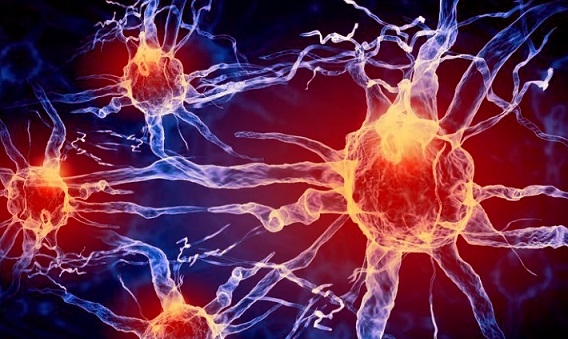Nikhil Prasad Fact checked by:Thailand Medical News Team Sep 17, 2025 5 months, 2 weeks, 1 day, 11 hours, 56 minutes ago
Medical News: Neuroinflammation and Its Link to Memory Loss
Scientists have long suspected that inflammation in the brain plays a role in memory decline and neurodegenerative diseases. Neuroinflammation happens when the brain’s immune system remains overactive due to infections or other triggers. This prolonged immune reaction can disrupt normal brain function, leading to issues with memory and cognition. Past studies have highlighted the role of inflammatory proteins, known as cytokines, in this process, but the exact mechanisms have remained unclear. In this
Medical News report, we explore groundbreaking research that provides answers to these questions.
 How Brain Inflammation Triggers Memory Loss Through DNA Damage
The Role of Cytokines in the Brain
How Brain Inflammation Triggers Memory Loss Through DNA Damage
The Role of Cytokines in the Brain
Cytokines are messenger proteins released by immune cells. Among them, interleukin-1 (IL-1) has been particularly linked to memory disturbances. However, until now, scientists did not fully understand how IL-1 might directly alter brain activity and memory processes.
A team of researchers from Université de Toulouse, INSERM, and CNRS in France set out to investigate this in detail. They chose to study mice infected with Toxoplasma gondii, a common parasite that can remain dormant inside brain cells and cause long-lasting inflammation. The parasite is estimated to have infected about one-third of the global population, making it an ideal model to study how infection-driven inflammation damages memory.
How Toxoplasma Infection Affects Memory
The researchers found that mice infected with T. gondii displayed significant problems with spatial memory. They struggled to recall the positions of objects and navigate mazes, a clear sign that their ability to consolidate spatial memory was impaired.
To understand why this happened, the team focused on the IL-1 cytokine. They discovered that IL-1 interferes with an essential brain process known as epigenetic regulation. This process involves subtle chemical changes to DNA that affect how genes function without altering the DNA sequence itself. In neurons, epigenetic regulation is critical for repairing DNA and ensuring that memory-related brain cells, especially those in the hippocampus, work properly.
Evidence from Advanced Imaging and Genetic Experiments
Using advanced microscopy techniques, the scientists observed that IL-1 exposure in mice caused clusters of DNA double-strand breaks in neurons. These breaks are marked by specific signals, including proteins known as γH2A.X and 53BP1, which were found colocalized in the hippocampus. This confirmed that IL-1 was directly damaging DNA in brain cells.
The team also tested what would happen if they blocked the ability of neurons to respond to IL-1. They genetically removed the IL-1 receptor in excitatory neurons—cells vital for memory function. Remarkably, when this receptor was disabled, the mice retained their ability to remember spatial tasks, even under high inflammation. This finding proved
that IL-1 signaling plays a central role in driving memory loss.
Implications for Neurodegenerative Diseases
The study not only explained how a parasite like T. gondii can impair memory but also revealed a broader mechanism relevant to many conditions. IL-1 levels are elevated in various chronic inflammatory diseases, including depression, Alzheimer’s disease, and other neurodegenerative disorders. This means the findings may extend well beyond parasitic infections.
The researchers also explored possible ways to prevent memory decline. They found that blocking either the IL-1 receptor or the DNA damage response pathway could protect neurons from inflammation-related memory problems. These results point toward new therapeutic strategies that could be developed to safeguard memory in people with chronic inflammation.
A Step Toward New Treatments
This research highlights how inflammation in the brain leads to molecular-level changes that directly damage DNA and interfere with memory. By connecting cytokine activity, epigenetic regulation, and neuronal DNA damage, the study provides the first clear explanation of how brain inflammation translates into memory impairment.
The conclusion is both concerning and hopeful. It shows that infections like T. gondii can silently harm memory by disrupting DNA repair in brain cells, and that widespread inflammatory conditions may do the same. At the same time, it offers promising avenues for treatment. If drugs can be developed to block IL-1 signals or protect neuronal DNA from inflammatory stress, memory decline could potentially be slowed or prevented in many brain-related illnesses. This breakthrough opens new doors in understanding memory loss and how it might be treated in the future.
The study findings were published in the peer reviewed journal: Nature Neuroscience
https://www.nature.com/articles/s41593-025-02041-x
For the latest on Neuroinflammation, keep on logging to Thailand
Medical News.
Read Also:
https://www.thailandmedical.news/news/malaysian-scientists-find-that-sars-cov-2-triggers-long-term-brain-damage-via-immune-chaos-and-neuroinflammation
https://www.thailandmedical.news/news/new-study-links-retrotransposon-protein-to-brain-aging-and-neuroinflammation
https://www.thailandmedical.news/news/sars-cov-2-also-targets-the-nervous-system-of-eyes-causing-ocular-neuroinflammation
